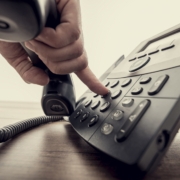Let’s all speak up about fraud
2023’s National Consumer Protection Week begins on March 5 and lasts until March 11. This is a great opportunity to brush up on your fraud prevention skills. But more than just reducing your own risk, sharing what you know with friends, family, and colleagues can help reduce everyone’s risk. It’s good to keep yourself protected—it’s better to help a friend.
While fraud can affect anyone, regardless of age and other demographic information, Fraud.org and the National Consumers League (NCL) are putting the spotlight on scams targeting older Americans. NCL’s upcoming podcast episode features Lizette Alvarez of the Washington Post and Debra Berlyn of Project GOAL who will discuss fraud prevention strategies for seniors and their families. Below are a few key points to keep in mind as we enter Consumer Protection Week. Be sure to listen to the full podcast episode premiering March 6 for more details on elder fraud.
Don’t be ashamed of fraud
Each year, scammers defraud millions of Americans. Given the stigma associated with these crimes, victims often feel embarrassed and ashamed. This leads to far too many incidents of fraud going unreported. As a result, impacted individuals are not connected with resources that can help them recover. It also leaves victims more vulnerable to be re-victimized, as scammers often prey on victims again and again. If you or someone you know has been a victim of fraud, encourage them to talk about what happened and report it to the proper authorities.
How to help spot impersonation scams: stop and verify
Imposter scams are one of the most common types of fraud reported to Fraud.org. A common set-up involves a scammer impersonating a family member of the victim over the phone and claiming that they require money to resolve an urgent issue (bond, doctor’s bill, etc.). Scammers are very adept at making these deceptions sound legitimate and a common tactic is to tell the victim that if they tell anyone else what is going on, something terrible will occur.
A key way to avoid being a victim of an impersonation scams to remember two words: “Stop” and “Verify.”
First, victims should understand that scammers want you to act quickly. on emotions like fear. By stopping, you give yourself time to take a pause and think through what you’re being asked to do.
Second, victims should verify. If the scammer claims to be a loved one, call the relative or (in cases where the scammer may be impersonating a child) a parent of the relative. If the scammer is impersonating a bank or government agency, hang up and look up the phone number for that agency or company yourself and call to check whether what you’re hearing is accurate.
While there’s no silver bullet for preventing imposter scams, learning to stop and verify the claims you’re hearing over the phone, email, or text can help save you from becoming a fraudster’s next victim.
Share less online
Phishing scams are not new. Fraudsters have been seeking login information and other sensitive credentials with deceptive emails, texts, and instant messages for years. However, with the proliferation of social media and other digital platforms, more information about our personal lives is publicly available than ever before. Dedicated scammers can use this information to create more convincing phishing attacks. Seemingly harmless information such as employment history, previous residences, or recent vacations may be used to compose a message that appears as if it were written by someone who actually knows you.
To help reduce the risk of phishing, make sure and make your social media accounts on platforms like Facebook and Instagram private, so that only people you approve can see your profile information. On public social media accounts like LinkedIn, avoid sharing information like travel plans or family members’ names that scammers can use to create more effective phishing attacks.
Don’t send money to recipients you haven’t met
At Fraud.org, we hear heart-breaking stories of older adults who report losing their life savings to fraud. An important message to drill home is that if you have not met someone in person, you should be very wary of sending them any money. The is doubly true if you are being asked to send money via peer-to-peer money transfer services. (e.g., Zelle, Venmo, Cash App, or PayPal), bank account debit, wire transfer, or gift cards.
Although scams can—and do—take place offline, fraudsters can easily hide their suspicious behavior when communicating remotely. Many forms of fraud, such as imposter scams and romance scams, are much more difficult (if not impossible) to conduct in person. Be extra cautious of solicitations sent digitally.
Pass it on
National Consumer Protection Week is the perfect opportunity to have conversations about fraud with those you know and love. If we all commit to sharing what we know with just one other person, we can put a real dent in the harm that fraud causes to far too many people.
If you or someone you know has been a fraud victim, help yourself and other by reporting it! By using Fraud.org’s secure online complaint form, your complaint will be shared with our network of consumer protection and law enforcement agency partners.












